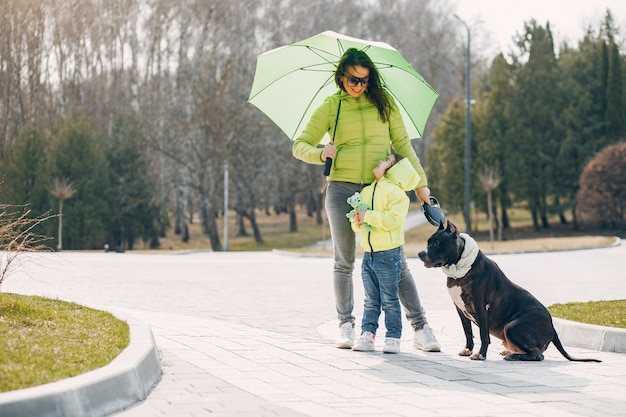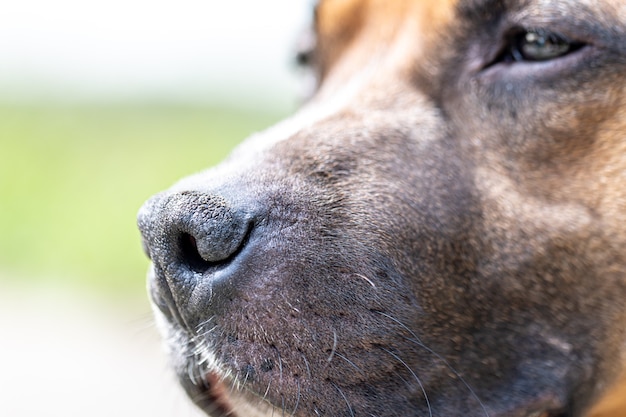Pet Care Tips for Rainy Fall Days in Georgia


Pet Care Tips for Rainy Fall Days in Georgia
As autumn arrives in Thomson and the surrounding communities, the familiar sound of rainfall and the scent of wet leaves fill the air. While Georgia’s rainy fall days bring relief from the summer heat, they also present unique challenges for pet owners committed to keeping their furry companions healthy and happy. At Reese Veterinary Hospital, located at 658 Main Street, Thomson, GA 30824, we understand the importance of adapting your pet care routine to match the season’s changing weather.
From muddy paws tracking bacteria into your home to a surge of fleas and ticks seeking shelter from the damp outdoors, fall’s wet conditions call for extra attention to your pet’s hygiene, comfort, and preventive care. In this blog, our veterinary team will guide you through the most common rainy season challenges and offer practical solutions to keep your pet safe. Topics will include how to recognize weather-related health issues, why they occur, effective treatment options, and simple steps you can take at home. You’ll also discover the importance of ongoing flea and tick prevention as part of your seasonal pet care in rainy weather in Thomson.
Whether you’re looking for expert advice or searching for a “vet near me” you can trust, Reese Veterinary Hospital is here to help you and your pet enjoy a healthy, comfortable fall.
Recognizing Rainy Weather Pet Health Concerns
During rainy fall days, pets are exposed to a variety of health risks that might not be as prominent during drier months. Understanding what to watch for can make all the difference in keeping your pet protected and ensuring timely intervention when needed.
Common Symptoms and Warning Signs
Key symptoms of rainy weather-related issues in pets include persistent scratching, licking, or biting at the skin, which may indicate flea infestations or skin irritation from trapped moisture. Additionally, you may notice muddy or inflamed paw pads, redness between toes, or a musty odor, all of which can signal the beginnings of a bacterial infection. Other signs to watch for are sneezing, coughing, or nasal discharge, which sometimes occur due to increased mold and allergens after heavy rainfall.
If your pet’s coat feels damp for extended periods or you observe hair loss, scabs, or hot spots, these could be early indicators of skin issues that require attention. Dogs and cats may also show changes in behavior, such as reluctance to go outside, excessive grooming, or hiding, which often relate to discomfort caused by wet or muddy conditions.
For those living in Thomson or searching for pet care in rainy weather near me, being aware of these symptoms can help you address small issues before they become more serious health concerns.
Why Rainy Weather Increases Health Risks for Pets
The humid, wet conditions typical of Georgia’s autumn create a thriving environment for parasites, bacteria, and fungi. When pets walk through puddles or damp grass, moisture and mud can become trapped in their fur and between their toes, providing the perfect setting for bacterial growth. This is especially true for breeds with long hair or thick undercoats, which take longer to dry.
The Role of Fleas, Ticks, and Bacteria
Flea and tick populations often surge during rainy fall months, as the moisture allows their eggs and larvae to survive longer outdoors. These parasites don’t just make your pet uncomfortable; they can transmit diseases such as Lyme disease or ehrlichiosis, and cause allergic reactions that lead to secondary skin infections.
Bacteria and fungi flourish in wet environments, increasing the risk of paw infections, hot spots, and even ear infections, especially in floppy-eared breeds. Muddy yards can harbor harmful organisms such as leptospirosis or giardia, which pets may ingest by licking their feet or fur after being outside.
Understanding how the local climate contributes to these risks is crucial for pet owners seeking veterinary services in Thomson and nearby communities. The team at Reese Veterinary Hospital is always available to answer your questions about local threats and how to keep your pet protected.
Professional Treatment and Management for Rainy Season Issues
When weather-related health problems arise, timely veterinary intervention can prevent minor issues from escalating. Our veterinarians at Reese Veterinary Hospital offer comprehensive evaluations and tailored treatment plans to help your pet recover quickly and comfortably.
Veterinary Approaches to Common Problems
Treatment approaches for muddy paw infections or skin irritations typically involve a combination of gentle cleaning, topical or oral medications, and recommendations for keeping the affected areas dry. If your pet is diagnosed with a skin infection, your veterinarian may prescribe medicated shampoos, antibiotics, or antifungal creams, depending on the underlying cause. For ear infections related to trapped moisture, ear cleaning solutions and medications are often necessary.
In cases of flea or tick infestations, our team may recommend prescription-strength preventives or treatments to eliminate parasites and soothe irritated skin. For pets experiencing allergy symptoms or respiratory issues, management may involve antihistamines, environmental changes, or further diagnostics to rule out more serious conditions. For ongoing concerns or complex cases, our pet diagnostic laboratory services in Thomson provide fast, accurate results to guide your pet’s care.
If you notice recurring problems or your pet does not improve with home care, scheduling an appointment for a wellness examination can help identify any underlying conditions and ensure your companion receives the appropriate treatment.
Preventing Rainy Weather Health Issues at Home
Prevention is key when it comes to keeping your pet healthy during Georgia’s rainy fall season. Incorporating a few simple routines into your daily care can make a significant difference, both in comfort and long-term wellbeing.
At-Home Steps for Healthier Pets
After every walk or outdoor play session, thoroughly dry your pet’s paws, legs, and underbelly with a clean towel. This helps remove trapped moisture and mud, reducing the risk of bacterial growth and paw infections. For pets with long or dense coats, consider using a pet-safe blow dryer on a low setting to ensure complete drying. Regular brushing helps remove debris and prevents matting, which can trap moisture against the skin.
Consistent flea and tick prevention should be part of your routine pet care in rainy weather in Thomson. Many over-the-counter products are available, but prescription options from your veterinarian offer stronger, longer-lasting protection, especially during peak parasite season. Additionally, keep your pet’s bedding and common indoor areas clean and dry, as these can become breeding grounds for fleas and bacteria.
If your pet is prone to ear infections, check ears regularly for redness, odor, or discharge, and consult your veterinarian about appropriate cleaning solutions. For dogs who dislike going outside in the rain, encourage bathroom breaks by using covered areas or raincoats, and reward them for quick trips outdoors.
By adopting these preventive steps and maintaining regular veterinary checkups, you can help your pet stay comfortable and healthy all season long.
When to Schedule a Veterinary Visit
While many rainy weather pet care challenges can be managed at home, certain situations require prompt attention from your veterinary team. Early intervention is always best when it comes to infections, parasites, or changes in your pet’s health.
Signs That Professional Care Is Needed
If your pet displays persistent symptoms such as limping, swelling, pus, or bleeding from the paws, it’s time to schedule an appointment. Other warning signs include ongoing scratching or chewing, hair loss, sores that do not heal, or signs of discomfort such as whimpering or withdrawal. Sudden changes in appetite or behavior, coughing that lasts more than a day, or evidence of fleas or ticks that are not responding to preventive measures all warrant a call to your veterinarian.
In addition, if your pet has been exposed to standing water or mud in areas known for wildlife, let your veterinary professionals know, as there may be additional risks such as leptospirosis or internal parasites. Remember, seeking veterinary services in Thomson at the first sign of trouble can prevent complications and help your pet recover more quickly.
Our team at Reese Veterinary Hospital is dedicated to providing comprehensive care for pets in Thomson and surrounding communities. Whether your concern is minor or more complex, we are here to answer your questions, perform thorough examinations, and develop a care plan tailored to your pet’s needs.
Keeping Your Pet Comfortable Through a Georgia Fall
With thoughtful planning and a few adjustments to your daily routine, you can help your pet enjoy autumn’s beauty without falling prey to the season’s health hazards. Prioritizing pet care in rainy weather in Thomson, staying consistent with flea and tick prevention, and practicing good hygiene are essential steps in supporting your pet’s wellbeing.
If you have questions about your pet’s health this fall or need advice about seasonal care, reach out to our compassionate team of veterinarians at Reese Veterinary Hospital. We invite you to schedule an appointment for a wellness check or discuss your concerns with our veterinary professionals. Our goal is to be your trusted choice when searching for a “vet near me” who understands the needs of pets in Thomson and surrounding communities.
For more information about maintaining your pet’s health in every season, explore our flea and tick prevention services or consider booking a wellness examination. To schedule your next visit, call (762) 800-1898 or stop by 658 Main Street, Thomson, GA 30824. We look forward to supporting you and your pet through all of Georgia’s changing seasons.



















